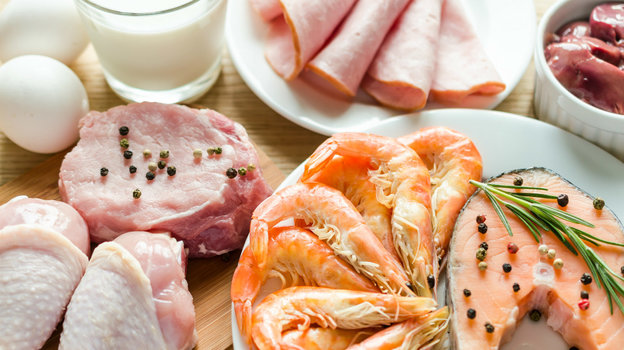Lisa Genova is a neuroscientist and the author of the book “Remember: The Science of Memory and the Art of Forgetting”. She graduated from Bates College with a degree in biopsychology and received a PhD in neurobiology from Harvard University. Genova travels around the world speaking about brain health, memory and neurological diseases.
Nonfat proteins
Foods high in saturated fat contribute to high cholesterol, high blood pressure, diabetes, obesity and heart disease, which increase the risk of developing Alzheimer's disease. The research has also proved that people who regularly eat red meat show greater cognitive decline.
Genova recommends replacing red meat with a variety of lean proteins, which she eats every day. Salmon, tuna, eggs and tofu are excellent alternatives. These are all sources of vitamins B and D, key nutrients for fighting dementia.
Whole grain products
Instead of processed white bread and rice, Genova prefers whole grain bread, brown rice and quinoa, which are good sources of vitamin B. A recent study shows that people who eat two servings of whole grains per day have a 40% reduced risk of developing Alzheimer's disease.
Leafy greens
Genova is a big fan of green leafy vegetables like spinach and kale, which are rich in brain-boosting nutrients including beta-carotene and folic acid. She eats salads almost every day, and one of her favorite recipes includes greens, roasted tomatoes, avocado, black olives and pistachios.
Nuts and seeds
Nuts, seeds, and vegetable oils such as flaxseed oil are excellent sources of omega-3 fatty acids, which keep brain cells healthy and reduce inflammation. It is vital to get enough omega-3 fatty acids because our bodies do not produce them themselves.
Photos are from open sources.





